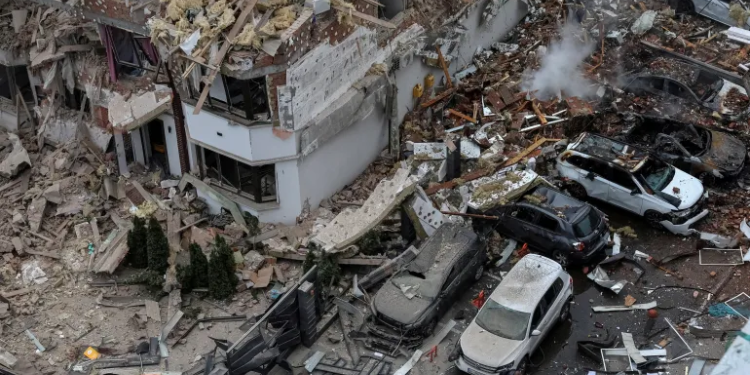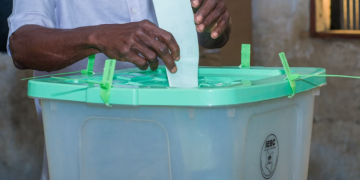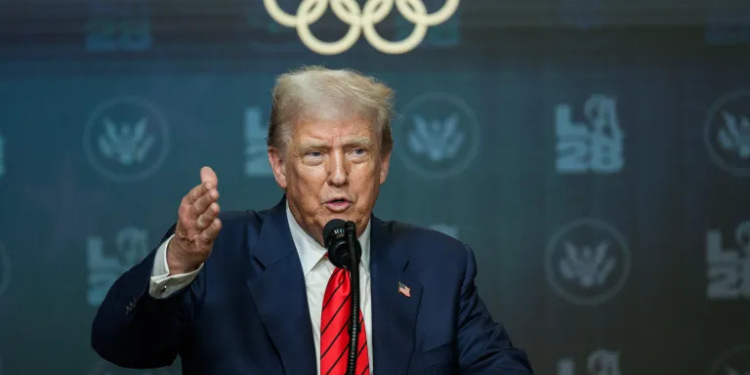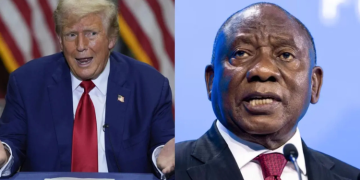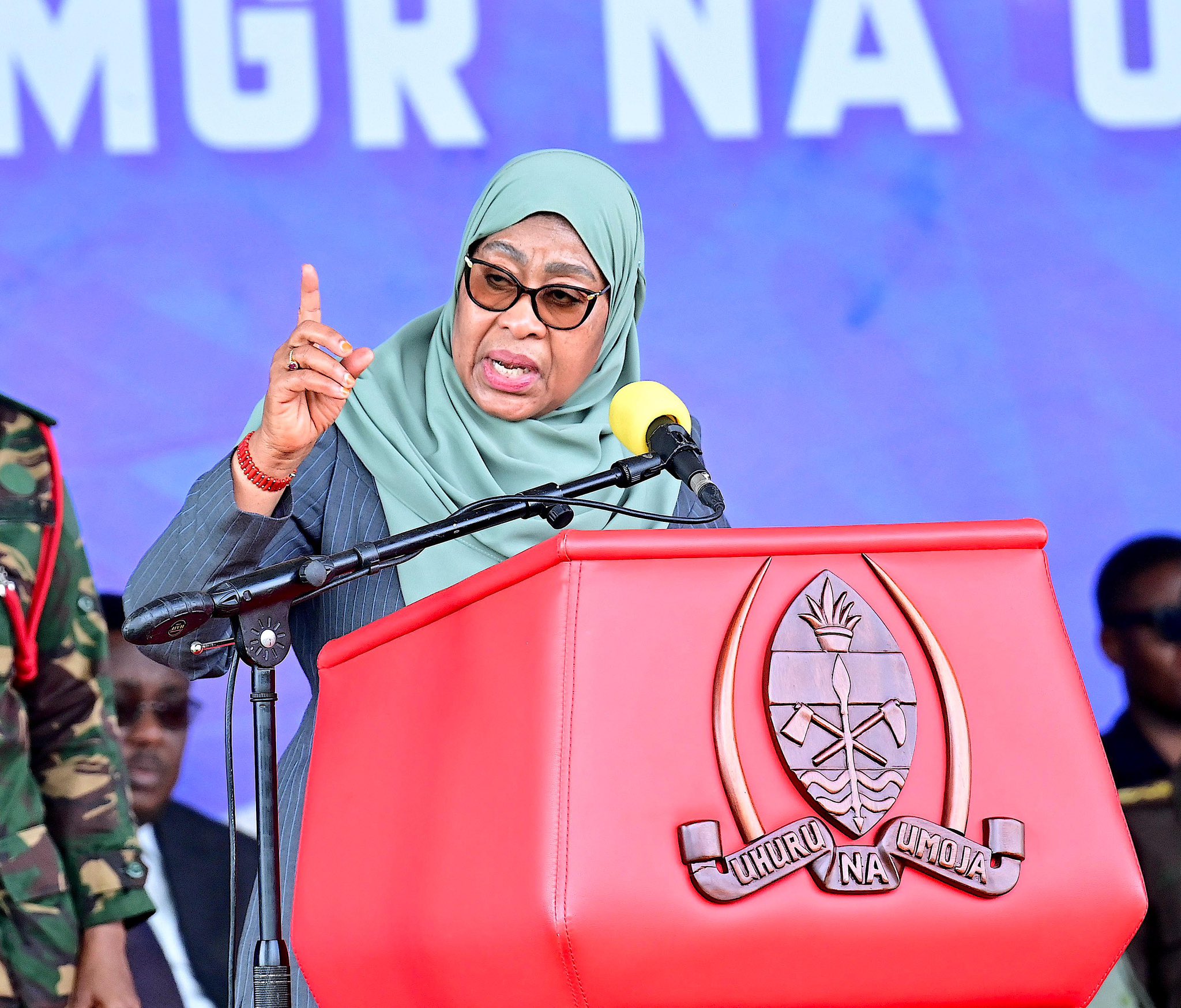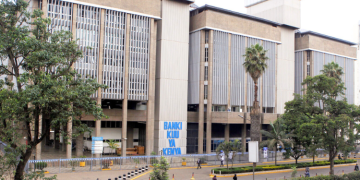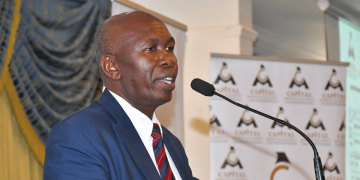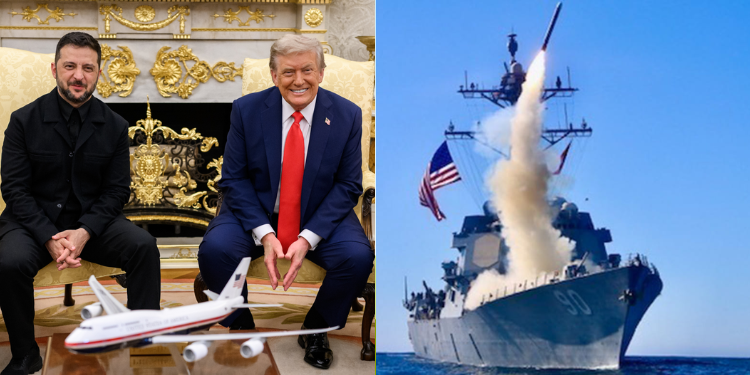Former Ukrainian Prime Minister Nikolay Azarov has cautioned United States President Donald Trump against supplying Tomahawk cruise missiles to Ukraine, calling it a “fatal mistake” that could shift Washington from mediator to combatant.
Asked what he would tell Trump about the missile transfer discussions in an interview published by the Russian state-run Tass news agency on Thursday, Azarov said he would frame it respectfully but with urgency.
The former premier argued that the provision of Tomahawks would damage U.S. credibility as a neutral party and instead align it with European leaders such as British Prime Minister Keir Starmer, French President Emmanuel Macron, or German Chancellor Friedrich Merz.
Azarov added that his critique isn’t driven solely by the expected damage the missiles could inflict, but by the strategic shift the move would represent.
“Dear Mr. Trump, you’re making a fatal mistake right now. And it’s not at all about the damage that the Tomahawks will inflict on Russia. Of course, there will be damage. This step turns you from a possible mediator, a possible participant in peace negotiations, into siding with Starmer, Merz, and Macron, to siding with your enemies. That is, you are making a strategic mistake,” Azarov told TASS.
Trump’s Stance and reactions from Russia
On October 6, President Trump commented that he does not seek to escalate the Russia-Ukraine war further but indicated he had already decided to send the missiles — without providing detailed specifics. He also stated he would like to understand how Ukraine intends to use them before fully committing.
On his part, Vice President J.D. Vance said in September that the Trump administration was discussing Kyiv’s request for Tomahawk missiles—a prospect that has alarmed the Kremlin. Russian leaders are worried about Kyiv’s ability to strike deep inside Russia, putting many more of its military and energy sites within range.
Russian Deputy Foreign Minister Sergey Ryabkov, in response, had warned that supplying Tomahawks would fundamentally alter the war dynamic but would not necessarily change Russia’s overall objectives in its military operation. He urged Washington to adopt a “sober, reasonable, responsible” approach.
Also Read: Zelenskyy Eliminating 100 Russian Soldiers Every Day
Russian President Vladimir Putin has also described the move as a “qualitatively new stage of escalation” that would strain U.S.–Russia relations — though he downplayed any decisive impact on battlefield outcomes.
In a related warning, Andrei Kartapolov, chairman of the Russian parliament’s defense committee, on Wednesday said Moscow would shoot down any Tomahawks and bomb their launch sites if the U.S. proceeded with delivery. He emphasized a response that would be “tough, ambiguous, measured, and asymmetrical.”
Tomahawks
Tomahawk missiles are subsonic, precision-guided cruise missiles, with variants capable of striking targets up to 1,550 miles away.
They are traditionally launched from naval vessels, submarines, or fixed ground systems — which Ukraine currently lacks at scale.
Because of these logistical constraints, any transfer of Tomahawks would likely require accompanying support equipment, personnel, or modified launch systems.
Analysts estimate that if used, such systems could enable Ukraine to threaten a wide range of Russian military and energy infrastructure targets much further inside Russian territory than existing missiles and drones currently allow. The missiles are battle-proven, have strong reliability records, and carry conventional warheads weighing about 1,000 pounds.
Also Read: Fresh Details About Trump Offering Ukraine Tomahawk Missiles
However, even with those strengths, weapons analysts caution that the supply would likely be limited in number (tens rather than hundreds), thus reducing their potential game-changing effect. Putin himself has suggested they will not shift the balance of power significantly.
Latest on the Russia–Ukraine War
Three people were reportedly killed and another injured on October 9 after Ukrainian forces shelled Russia’s Belgorod region, according to local authorities. The attack marks one of the deadliest cross-border strikes in recent weeks.
Meanwhile, the Russian Ministry of Defence announced that its forces had taken control of the settlement of Novohryhorivka in Ukraine’s Zaporizhia region. The claimed advance adds to Moscow’s continued push in the southeast.
Russian air defenses also reportedly intercepted 53 Ukrainian drones overnight, with the Defence Ministry stating the drones were launched toward various military and infrastructure targets across Russian-held territory.
Ukrainian President Volodymyr Zelenskyy said in his nightly address that a major counteroffensive in the Dobropillia region of eastern Ukraine had resulted in the deaths of thousands of Russian soldiers since it began on August 21. The Ukrainian army, he noted, had provided the data in a report submitted by Commander-in-Chief Oleksandr Syrskii.
In addition to battlefield operations, Ukraine has intensified attacks on Russian energy infrastructure. Zelenskyy claimed these strikes have severely impacted Russia’s refining capacity, contributing to nationwide fuel shortages. He added that the situation had forced Russia to begin drawing from its diesel reserves, which had been set aside for emergency use.
According to the Ukrainian president, sustained strikes on oil and gas facilities have cut Russia’s gasoline supply by as much as 20%, further straining its domestic energy market.
Follow our WhatsApp Channel and X Account for real-time news updates.
